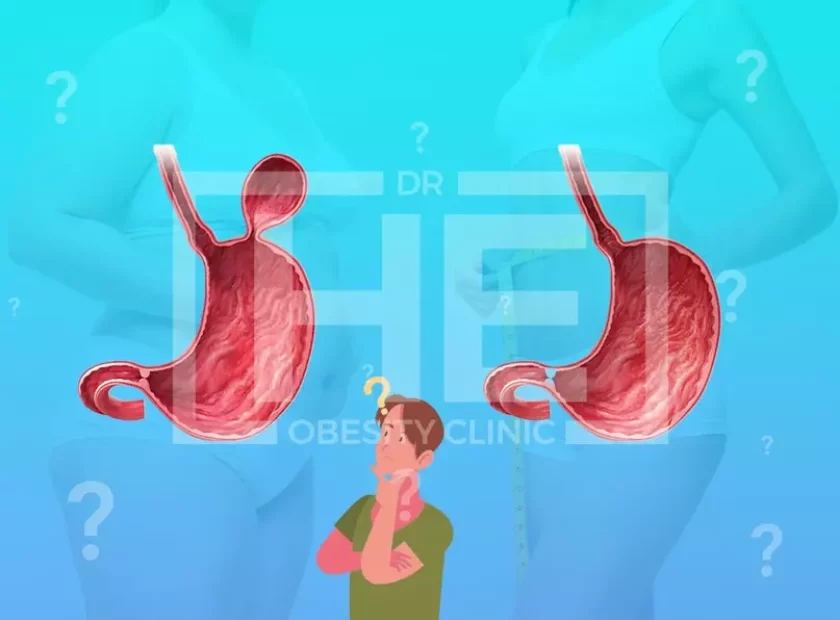
What Are Causes of Dizziness after Gastric Sleeve Surgery? Dizziness following bariatric surgery can be caused by a variety of factors. Patients who have bariatric surgery frequently feel dizziness or light-headedness after the procedure.
The term “dizziness” can refer to a variety of sensations ranging from faintness or lightheadedness to weakness or unsteadiness. Electrolytes, reactive hypoglycemia, and chemical imbalance are the causes of dizziness after bariatric surgery.
The first factor, that is, electrolytes may lead to dizziness. The body’s primary electrolytes include potassium, sodium, and chlorine. It is critical for individuals who have had bariatric surgery to eat properly and drink lots of water in order for these vital electrolytes to stay regulated inside the system and limit the risk of dizziness.
If a chemical imbalance is the source of dizziness in a person who has had bariatric surgery, staying hydrated or tiny doses of a sports drink will definitely help.
Reactive hypoglycemia, the other reason, is a disorder that can affect people who have had bariatric surgery for longer than a year following the treatment. Reactive hypoglycemia is characterized by uncontrollable shaking, dizziness, disorientation, and sometimes full loss of awareness.
The extra weight maintained by bariatric patients might cause changes in substances that enhance insulin levels before the surgical process. Individuals are increasingly responsive to insulin after undergoing a bariatric treatment, and glucose is removed from the system more quickly, resulting in reactive hypoglycemia.
Decreased blood glucose that develops after supper is known as reactive hypoglycemia. It is important to highlight that reactive hypoglycemia has nothing to do with a diabetic insulin response prior to surgery. This issue is merely a symptom of weight loss surgery that affects a tiny number of patients who have the treatment.
Furthermore, several scientific research has shown that chemical imbalances in the system can cause transient dizziness. Individuals who have had bariatric surgery often experience dizziness as a result of the limited nutrition that comes with the adjustment in lifestyles that follows the procedure.
Most bariatric surgery patients experience dizziness following gastric sleeve surgery as a result of not consuming sufficient water or allowing far too much time to pass during mealtime.
The entire body demands appropriate nourishment and liquids to operate effectively; if suffering from malnutrition and dehydration, the system will not operate normally, electrolytes will become imbalanced, and weakness or dizziness may follow.
All in all, dizziness after bariatric surgery can be caused by a variety of factors and can be eliminated by staying hydrated and consuming minerals.
Is Dizziness Common After Bariatric Surgery?
People who have had bariatric surgery may experience dizziness after the operation. This common side effect is a result of a chemical imbalance in the blood. One way to deal with it is to drink plenty of water and dilute juices. Reactive hypoglycemia is another common cause of dizziness.
It can lead to confusion or even loss of consciousness. Patients suffering from these symptoms should contact a doctor immediately.
If you are concerned that you may experience dizziness after bariatric surgery, you should try to eat smaller meals. Eating larger meals, however, is not recommended because it increases your risk of dizziness. Additionally, it may increase your risk of low blood pressure.
In either case, it is important to visit your surgeon for regular checkups and blood work. You should also ask about the possibility of developing dizziness after bariatric surgery.
Another common side effect is dumping syndrome. The body does not absorb fat and protein well. However, dumping syndrome may be relieved by eating foods high in protein and fat. Prescription medications can also be helpful in dealing with dumping syndrome.
Other complications associated with bariatric surgery include deficiencies of vitamins and minerals. Deficits of copper, for example, can result in difficulty walking and a number of neurologic disorders.
Orthostatic intolerance is another side effect of bariatric surgery. This is a syndrome resulting from the prolonged suppression of sympathetic nerve activity.
Symptoms of orthostatic intolerance can be chronic pre-syncopal symptoms. In such cases, treatment can resolve the problem. But for most patients, dizziness will subside after a few days. The best way to address this side effect is to learn as much as possible about it.
Constipation After Gastric Sleeve Surgery
The reason why you may feel constipated after undergoing gastric sleeve surgery is that your bowel movements are smaller than usual. You may also notice that your stool is hard and lumpy.
You may also have a bloated stomach and a feeling of needing to go, but being unable to do so. While this is normal after undergoing gastric sleeve surgery, it is important to seek medical advice if you experience this condition.
Your bowel movements will be altered after gastric sleeve surgery. Some patients experience irregular bowel movements, while others experience hard and painful stools.
Constipation is also common after bariatric surgery, so you should drink plenty of water. Ideally, you should have two to three bowel movements each day, and it is also important to drink plenty of water throughout the day.
Constipation after gastric sleeve surgery is common but can be severe. This is largely due to the fact that patients undergo gastric sleeve surgery under general anesthesia, and their pain medications during the first week may suppress the nerve signals that travel down the digestive tract. Additionally, your body will need time to adjust to a smaller pouch and a new diet.
Although constipation is not a dangerous side effect of gastric sleeve surgery, it is important to monitor your protein and fibre intake to avoid constipation.
You should also take fibre supplements to improve bowel motility and prevent constipation. Your body will thank you for these. As long as you don’t consume too much fibre, constipation won’t last.





